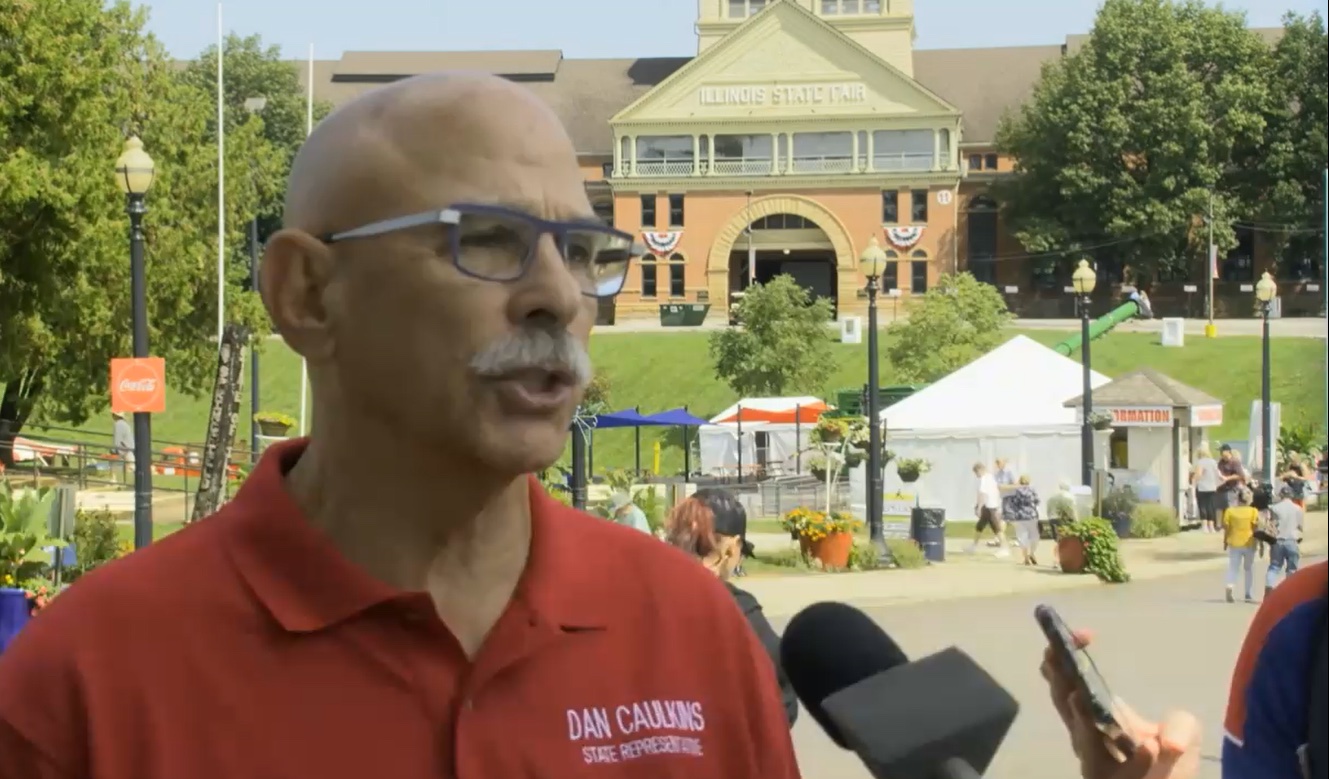By Illinois Review
Friday’s Illinois Supreme Court ruling against Illinois State Rep. Dan Caulkins’ challenge of the Assault Weapons Ban undoubtedly was a victory for Gov. JB Pritzker, who touted just last week that Illinois has become the Most Progressive State under his watch. While the Caulkins’ defeat kicked off a weekend of celebration for Gov. Pritzker, even including an appearance by Vice President Kamala Harris in Chicago, the fight against the Assault Weapons Ban is far from over.
The Illinois Supreme Court’s ruling comes just three weeks after the Court gave Gov. Pritzker a huge win by finding his controversial SAFE-T Act constitutional. And it was only a few weeks before then that Gov. Pritzker won his bid for Chicago to host the 2024 Democratic National Convention. As Gov. Pritzker continues to position himself as the common-sense alternative to embattled President Biden for the 2024 Democratic presidential nomination, the Caulkins’ defeat could not come at a better time for Gov. Pritzker.
But even as Caulkins’ case has been snuffed out, with the Illinois Supreme Court even going so far as to say that Caulkins has waived all other challenges to the Assault Weapons Ban, the ruling leaves open the door for the series of consolidated cases against the gun ban brought by former Republican Attorney General candidate Thomas DeVore, who went on record Friday night to defend the merits of his cases.
On January 20th, a week-and-a-half after the Assault Weapons Ban went into effect, Gov. Pritzker was caught flat-footed when an Effingham County judge entered a Temporary Restraining Order (TRO) against his gun ban.
Since that early win, DeVore secured additional TROs across Illinois, with additional plaintiffs joining his consolidated litigation in Effingham County that covers more than 7000 Illinoisans, including nearly 200 gun shops.
When Effingham County judge Joshua Morrison entered the TRO, his order found that DeVore was likely to prevail on the Equal Protection grounds. That was not an invitation to take the matter directly to the Illinois Supreme Court. Rather, it was the judge signaling to the parties that if the case is developed and brought to trial, DeVore is likely to win.
DeVore’s Equal Protection argument is based on seemingly arbitrary exemptions in the gun ban that allow for certain people to purchase or own banned weapons.
For instance, active and retired law enforcement are excluded from the ban, as are active military, prison guards, and employees in private security.
Not excluded, however, are retired members of the military.
In other words, a mall cop is exempt from the assault weapons ban and is free to buy an AR-15, but a retired member of SEAL Team Six is not.
To prevail on this argument, though, DeVore would have to show that the State cannot satisfy its legal burden to justify the constitutional violation – that is, at a minimum there must be some rational basis justifying these exemptions.
And DeVore has been doing just that: he served discovery requests on the defendants including requests for admission that the gun ban legislation provides no justification whatsoever for these exemptions, and he has been seeking emails from state legislators sent in the eleventh hour before the Assault Weapons Ban suddenly became law.
Then entered Rep. Caulkins, who filed his separate stand-alone complaint that largely copied DeVore’s complaints, including the same Equal Protection violations.
Without developing any record before the trial court, Caulkins filed a direct appeal to the Illinois Supreme Court on the ultimate issue of the Equal Protection issue.
Caulkins’ failure is no surprise to Illinois Review, who previously reported that Caulkins’ direct appeal was likely to fail because his case was devoid of any record.
In fact, Illinois Review publisher Scott Kaspar wrote an op-ed speculating that Caulkins’ behavior was so odd, that he must have cut a deal with Gov. Pritzker. As Kaspar stated on One America Network (OAN), Caulkins drew public scorn by adding constituents to his case in exchange for a $200 campaign donation.
DeVore’s consolidated litigation now moves forward with discovery regarding the basis of the exemptions and how they came to be. DeVore has served requests to admit on the Democratic House and Senate leadership to confirm that there was no basis in the legislation for the exemptions.
DeVore also is seeking production of Democratic legislators’ emails relating to the passage of the Assault Weapons Ban. DeVore believes that these documents will shed light on why these exemptions were placed in the ban and will demonstrate that the exemptions were necessary to secure the votes to pass the legislation.
But because these documents also will show which legislators and special interests control Springfield, attorneys from the AG’s Office representing Gov. Pritzker, AG Raoul, and the House and Senate leadership have not produced any documents and so far have refused to comply with the discovery requests.
DeVore’s consolidated litigation also challenges the Assault Weapons Ban based on the “Three Readings” rule and other procedural grounds that were not before the Illinois Supreme Court.
While the Caulkins’ and DeVore litigations were brought in Illinois state court as violations of the Illinois Constitution, the Assault Weapons Ban also has been challenged in federal court as violating the Second Amendment of the US Constitution.
Illinois State Rifle Association (ISRA), which brought one such federal lawsuit released this statement on Friday:
“[G]un advocates across the state should not lose hope because our federal case—the ISRA case—which we expect to go before the U.S. Supreme Court, will prove to be a victory not just for law-abiding gun owners in Illinois—but across the country. And the ISRA and the Second Amendment Foundation are proud to stand up for gunowners as we take our case to the highest court in the land.”
Please continue to follow Illinois Review and DeVore Law Offices for more updates as they become available.








